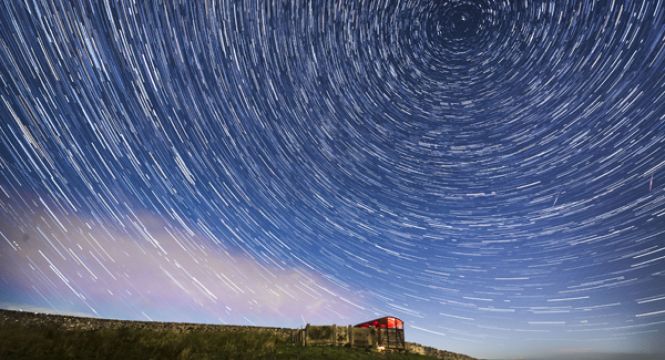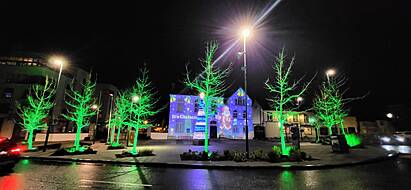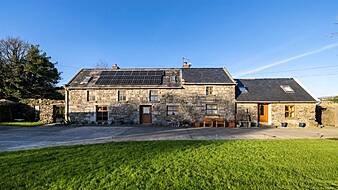The shower will reach its peak activity over the next two nights, August 11th and 12th, with 20 times more shooting stars visible than a normal night from dusk until dawn.
Astronomy Ireland says the “natural celestial fireworks display” can be enjoyed by star gazers from anywhere on the island with just the naked eye and a dark part of the sky away from street lights.
David Moore, founder of Astronomy Ireland, says the display will be spectacular: “This shower is known for producing some brilliant fireballs. I remember seeing one that lit up the whole countryside like daylight for a few seconds.”
“We should see about 20 times more shooting stars, or meteors to give them the correct name, than a normal night, so you might be hanging around for 10 minutes in a dark country sky to see one – you could be seeing two per minute tonight.”
A Perseid's meteor fireball runs through the heart of the Milky Way on Saturday night at Slieve League, Co Donegal. Great to capture it, especially given the 75% Moon. Tap to expand to see all the star light! pic.twitter.com/9dNdu0qJPC
— Alistair Hamill (@ahamillphotos) August 10, 2020
Advertisement
The comet that causes the Perseids, the Comet Swift-Tuttle, orbits the sun every 130 years and last came close in 1992. Meteors are the result of small particles from comets burning up high in the earth's atmosphere.
Astronomy Ireland is asking everyone in Ireland to help count the shooting stars this year by filling out a form on its website.
“We want people to count them for every 15 minutes. Start on the hour, and we can then track how the shower peaks and how intense it is, and comparing that to the previous year, that’s how we know that this is one of the best of the years,” says Mr Moore.
“There’s another one in December that’s vying for title of best meteor shower of the year.”
Star gazing is a popular activity in Ireland, with Astronomy Ireland being the largest astronomy club in the world relative to population size.







